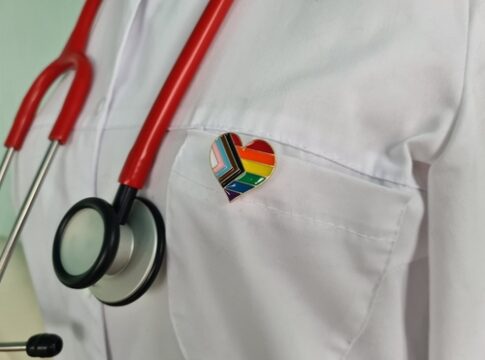Following his shooting on March 30, 1981, President Reagan underwent life-saving surgery under the direction of Dr. Joseph Giordano, chief of surgery at George Washington University Hospital. Giordano, the first college-educated member of his family and the son of Italian immigrants, established GW Hospital’s trauma unit, which resulted in its certification as a Level I trauma center. Giordano passed away at age 84, leaving behind a lasting legacy in trauma surgery and medical education.
A Fateful Day in American History
On March 30, 1981, John Hinckley Jr. forever altered American history when he opened fire outside the Washington Hilton Hotel in an attempt to assassinate President Ronald Reagan. The would-be assassin, obsessed with actress Jodie Foster after watching the film Taxi Driver, believed the attack would impress her. The shooting wounded not only the president but also White House press secretary James Brady, Secret Service agent Tim McCarthy, and D.C. police officer Thomas Delahanty. The bullet that struck Reagan ricocheted off his limousine, entered under his armpit, and punctured his lung before coming to rest dangerously close to his heart.
Dr. Giordano and his trauma team at George Washington University Hospital immediately mobilized upon Reagan’s arrival. Initially, the president’s condition wasn’t apparent, as he had walked into the hospital before collapsing. Once the severity of his injuries became clear, Giordano led the emergency surgery to remove the bullet and repair the damage. The bullet had traveled just one inch from Reagan’s heart, making the operation particularly delicate and high-stakes. Despite the president’s age of 70 at the time, he recovered remarkably well, returning to the Oval Office by April 25, less than a month after the shooting.
Today, we mourn the loss of Dr. Joseph Giordano, the surgeon who helped save President Reagan’s life following the 1981 assassination attempt. He once shared this memorable exchange from that day:
“President Reagan said to me, ‘I hope you’re all Republicans,’ and I replied,… pic.twitter.com/djpp76yOv2
— Ronald Reagan Presidential Foundation & Institute (@RonaldReagan) July 1, 2025
The Surgeon Behind the Historic Operation
Joseph Giordano was born to Italian immigrants and became the first in his family to attend college, embodying the American dream through dedication and hard work. As chief of surgery and director of the trauma center at George Washington University Hospital, he had organized the trauma unit that would eventually earn Level I trauma center certification. His quick thinking and surgical expertise during the Reagan operation were products of years of medical training and experience. President Reagan himself later honored Giordano at a National Italian American Foundation dinner in 1984, recognizing both the surgeon’s and his father’s contributions to American society.
The successful treatment of President Reagan marked a pivotal moment not just for American history but for Giordano’s career and the hospital’s reputation. The publicity surrounding the president’s care brought substantial donations to the institution and raised awareness about trauma care nationwide. Giordano never sought the spotlight for his role in saving the president, but the event inevitably shaped the remainder of his professional life. His work helped establish new protocols for emergency response and trauma care that benefited countless patients beyond the famous one he treated that day.
RIP, Dr. Joseph Giordano, the surgeon who helped save President Reagan’s life following the 1981 assassination attempt. He once shared this memorable exchange from that day:
“President Reagan said to me, ‘I hope you’re all Republicans,’ and I replied, ‘Today, we’re all… pic.twitter.com/oMzPZPfzd1— Carol RN *Miss Rush & the Gipper* 👩⚕️🇺🇸 🇮🇱🦈 (@pasqueflower19) July 2, 2025
A Lasting Legacy in Medicine and History
The assassination attempt had profound ripple effects throughout American society. No formal invocation of the 25th Amendment occurred during Reagan’s incapacitation, though Secretary of State Alexander Haig controversially claimed he was “in control” until Vice President George H.W. Bush returned to Washington. James Brady, who suffered permanent brain damage from his wounds, became the namesake for the Brady Handgun Violence Prevention Act of 1993 after his death in 2014 was ruled a homicide stemming from his 1981 injuries. Meanwhile, Hinckley was found not guilty by reason of insanity and remained in psychiatric confinement until 2016.
Dr. Joseph Giordano’s passing at age 84 marks the end of a remarkable life dedicated to medical excellence and service. Beyond his momentary intersection with presidential history, his true legacy lies in the trauma care systems he helped build, the medical students he trained, and the countless lives saved through his innovations in surgical practice. His career exemplifies how a single moment of crisis can highlight a lifetime of preparation and expertise. For many Americans who lived through the Reagan era, Giordano represents the quiet heroism of medical professionals who step forward in our nation’s most critical moments.


